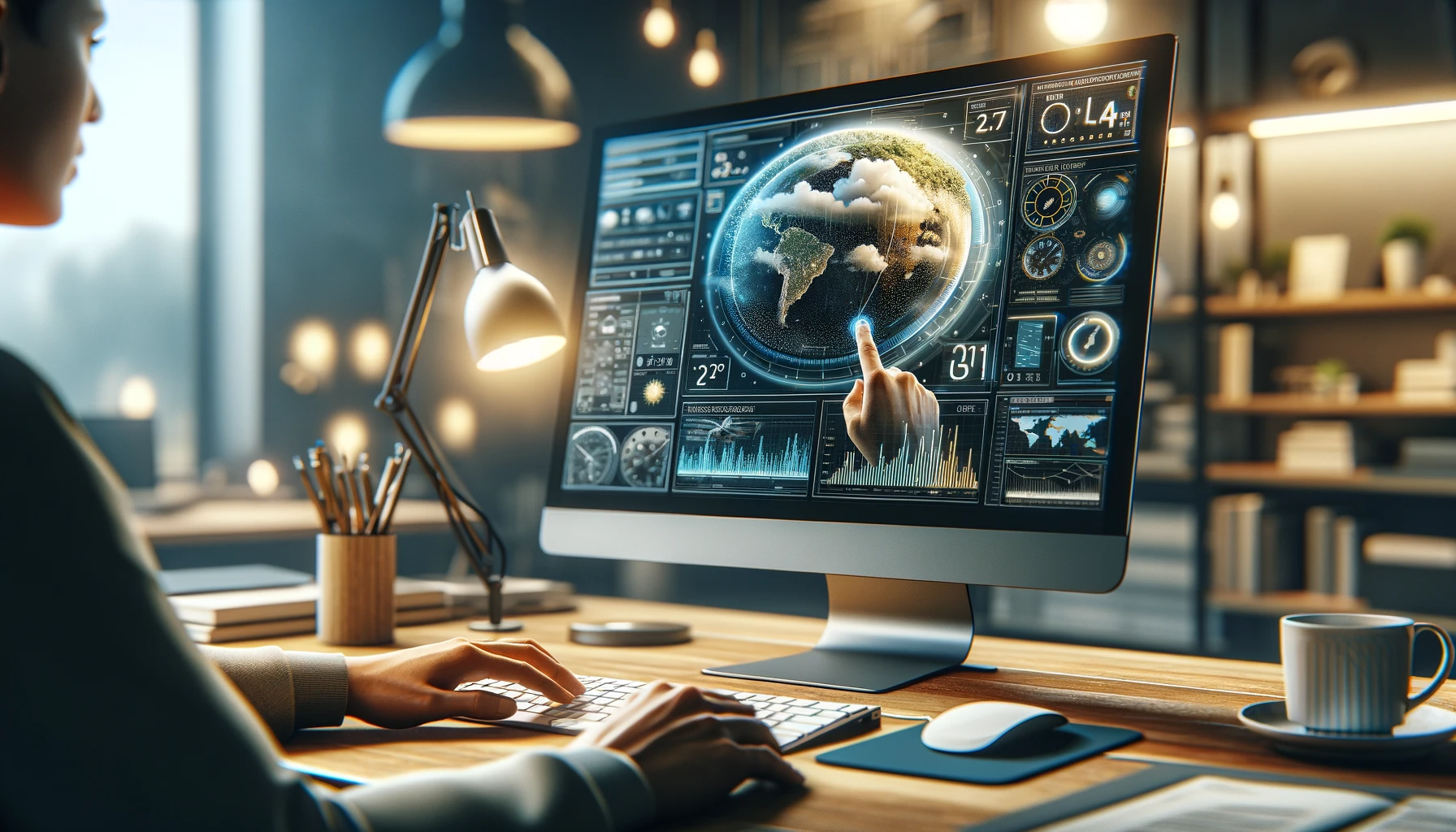A recent publication in the journal Nature explored the GraphCast model developed by DeepMind, an artificial intelligence (AI) company. The proposed model accurately forecasts global weather conditions in less than a minute with greater precision than alternative methods.
 Study: DeepMind's GraphCast: Revolutionizing Global Weather Forecasting. Image credit: Generated using DALL.E.3
Study: DeepMind's GraphCast: Revolutionizing Global Weather Forecasting. Image credit: Generated using DALL.E.3
Background
Google DeepMind has ventured into the intricate realm of weather forecasting, unveiling GraphCast, a machine-learning model. This model, distinguished by its ability to outperform conventional tools and other AI methodologies, exhibits superior accuracy and efficiency. Unlike traditional models that necessitate supercomputers and hours of computation, GraphCast can operate on a desktop, producing more precise predictions within minutes.
According to Aditya Grover, a computer scientist at the University of California, Los Angeles, GraphCast currently leads the competition among AI models. Published in Science on November 14, the model signifies a breakthrough in the demanding and energy-intensive task of weather prediction.
Weather forecasting
Weather forecasting conventionally relies on numerical weather prediction (NWP), deploying mathematical models grounded in physical principles. These physical models, executed on supercomputers, analyze global data from satellites, buoys, and weather stations. While accurate, this approach is financially and energetically demanding. To mitigate these challenges, various technology companies, including DeepMind, Nvidia, and Huawei, have developed machine-learning models for rapid weather predictions. The Pangu-weather model from Huawei emerges as a robust contender against the conventional NWP system employed at the European Centre for Medium-Range Weather Forecasts (ECMWF) in Reading, United Kingdom.
Matthew Chantry, a machine-learning coordinator at ECMWF, emphasizes that machine learning is instigating a revolution in weather forecasting. AI models, running significantly faster than conventional NWP models, afford scientists more time for the interpretation and communication of predictions. GraphCast surpasses both conventional and AI-based approaches to global weather forecasting tasks.
Training and performance of GraphCast
The model underwent training using estimates of past weather globally from 1979 to 2017, allowing it to discern relationships between weather variables such as wind, air pressure, humidity, and temperature. Utilizing present global weather conditions and extrapolating from data collected six hours earlier, GraphCast predicts weather patterns six hours into the future. This iterative approach allows for forecasts up to ten days ahead, achieving this in under a minute and surpassing the capabilities of the ECMWF's high-resolution forecasting system.
Rémi Lam, a computer scientist at DeepMind, notes GraphCast's exceptional performance, particularly in predicting severe weather events and atmospheric variables at various levels. The model outshines the ECMWF's high-resolution forecasting system across multiple measurements. Comparisons with Huawei's Pangu-weather reveal GraphCast's dominance in weather predictions, boasting a success rate of 99 percent. However, Chantry underscores that while GraphCast excels in specific metrics, future evaluations using different criteria may yield nuanced results.
Chantry anticipates that machine-learning models will complement rather than replace conventional approaches, enhancing specific types of weather prediction. Challenges include understanding the decision-making processes within the AI's 'black box,' potential biases in training data, and the considerable energy required for training. Despite these hurdles, machine-learning approaches are positioned to contribute significantly to real-world decision-making within the next two to five years.
In summary, Google DeepMind's GraphCast stands at the forefront of a transformative era in weather forecasting, showcasing the potential of machine learning to revolutionize an age-old scientific endeavor.